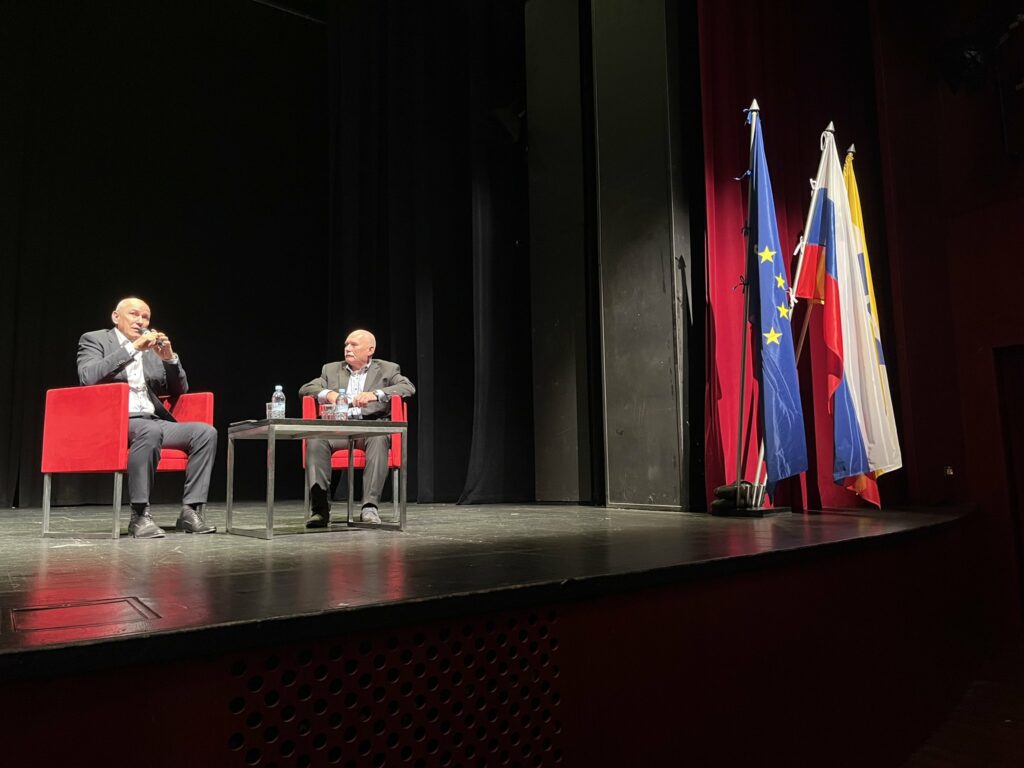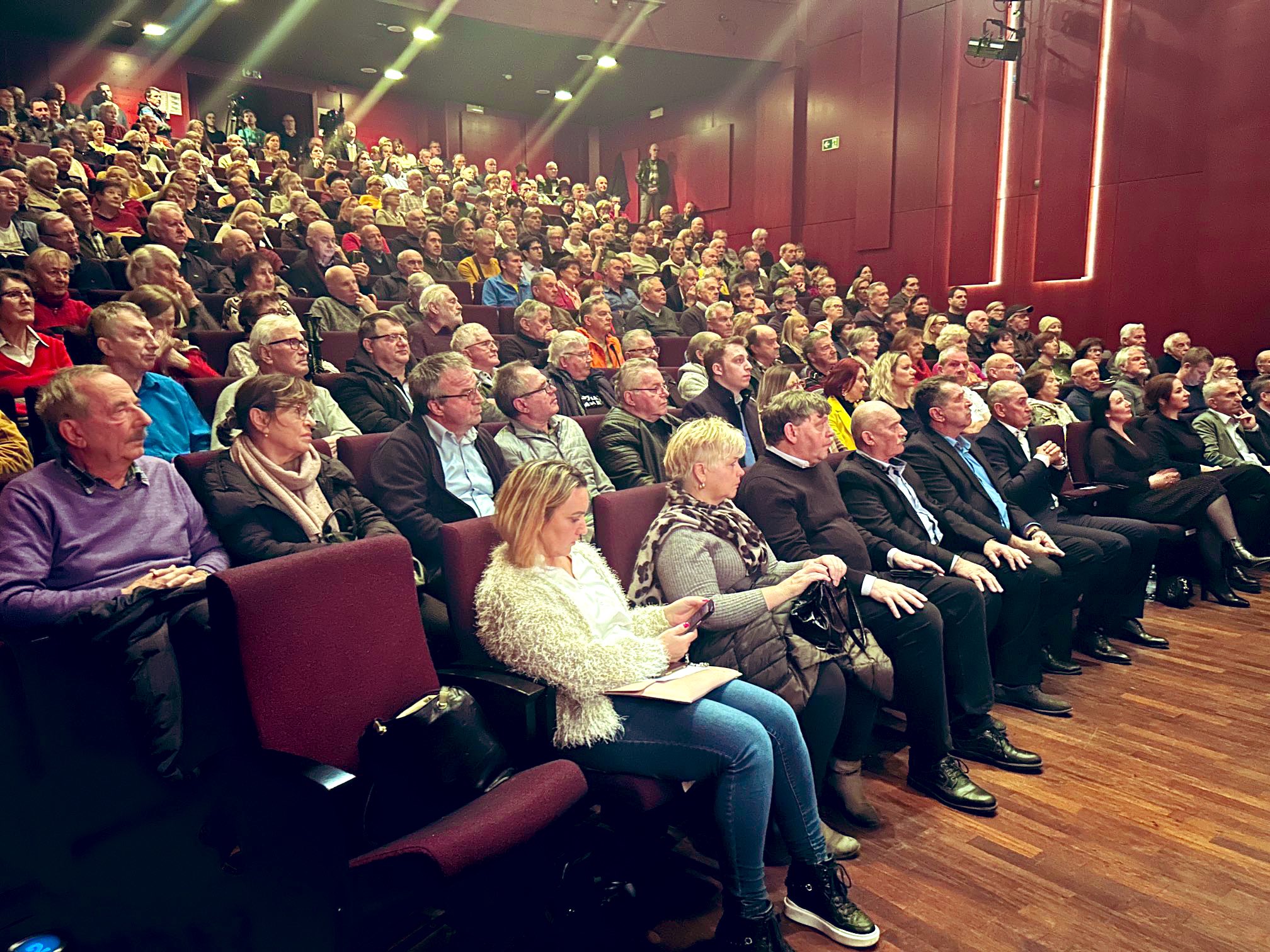A discussion evening was recently held at the Koper Theatre, where the guest was the President of the Slovenian Democratic Party (Slovenska demokratska stranka – SDS), Janez Janša. No wonder the Left party (Levica) wanted to ban the event, as the theatre hall was filled to the very last seat and the topic of the public debate was migration and the security of Slovenia.
Janez Janša warned that the migrants coming to our country are not the same as they used to be. “When our fathers or grandfathers went to Germany as migrant workers, Germany only benefited from them arriving there. Everyone who came there tried to adapt as quickly as possible, to be as little of a problem as possible, to earn as much as possible… Nobody even thought of telling Germans that they had to learn Slovenian.”
Janša accused the mainstream media of blurring the distinction between these groups by using the word “refugees” and of acting in the service of “cultural Marxism”, which seeks to disintegrate the nation. Left-wing parties across Europe, Janša said, are inviting migrants to our continent in order to increase their voter base. He singled out the German Social Democratic Party (SDP), which wins seats mainly in neighbourhoods where the German population is not in the majority.
He added that the situation has never been as dire as it is this year, when police officers reported hundreds of illegal border crossings, even in the middle of winter. According to the SDS party President, the statistics, especially in Ljubljana, show an increase in crimes, especially crimes committed by foreigners – “mostly in the vicinity of asylum centres,” he added.
According to Janša, there are two ways of tackling the problem. The first is for the state to protect itself, including by erecting fences on its borders. He blamed the current government for sending an invitation to illegal migrants by removing the fence, and for creating an “absurd situation” by controlling border crossings, with which it only causes problems for those who want to cross the border legally – with all their documents. Another way, he said, was to tackle the causes where they arise. In this context, he criticised past European policy towards Libya, Syria and some other countries.
He also touched on Prime Minister Robert Golob‘s statement on the legalisation of migration: “If a country has a government where the Prime Minister says that illegal migration will be solved by making it legal, or where the government says it will tear down the fence on the border, how will this statement be understood in the migrant centres in Bosnia and Herzegovina? As an invitation, of course.”
When asked about the readiness of the Slovenian Armed Forces for possible conflicts, Janša said that Slovenia has more people working for the national media outlet, Radio-Television Slovenia (RTVS), than it has Slovenian soldiers. “The only solution would be to reintroduce compulsory military service. A few European countries have already introduced it, and many are now considering it.”
A. G.




